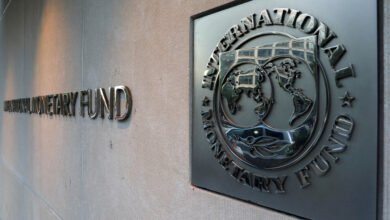
The African Union plans to launch its own credit ratings agency come 2024. This is to address the union’s concern that the ratings given to the African states are unfair and not a true reflection of the state of the economy. The Agency will be expected to craft its own assessment parameters of the risks in lending to African countries.
The African Union and leaders of member states notes that the big three rating agencies; Moody’s, S&P Global and Fitch Ratings do not fairly assess the risk of lending to African countries, said Mishek Mutize, the lead expert for country support on rating agencies with AU. The union notes that the 3 agencies are quick to downgrade the members in case of global crisis such as the Covid 19. The AU has tasked the African Peer Review Mechanism (APRM) to spearhead this agenda.
Credit listings are designed to gauge the borrowers risk of default thus factoring the interest rate, tenure and other terms on which banks and other lenders will lend to them. Credit rating remains a highly influential tool investors use in their capital allocation. The credit rating industry in Africa is dominated by the 3 international agencies controlling an estimated 95% of the credit rating business globally.
Other complaints by the AU include inadequate consultation with the stake holders and perceived shortcomings in independence and objectivity.
Moody’s downgraded Nigeria to Caa1 from B3 this year coming as a surprise according to the Finance minister Zainab Ahmed. ‘’But these are external rating agencies that don’t have the full understanding of what is happening in our domestic environment’’, said the minister. Mutize however is quick to note that the new African credit rating agency will not come as a substitute but as an independent agency within Africa and operating in Africa.
The United Nations Development Programme study in April showed that the African countries could save up to USD74.5 billion if credit rating were based on less subjective assessment, citing ‘’idiosyncrasies’’ in the frequency of rating actions for African countries as an example.
Senegalese President Macky Small, who is also the current chair of the AU and the president of Senegal, argued that the international rating agencies overstate Africa risk, making it impossible for countries to borrow money at fair rates, even if the ROI is greater in Africa than other economies.
Tunisia for instance, has been struggling to pay its public debts that have risen to 90% of its GDP, from 70.1% between the year 2015-2019, just above the IMF ceiling of 70% under the Debt Sustainability Analysis (DSA).
Tunisia external debt is USD 41.6 billion (2021). Tunisia’s credit rating has been downgraded with Fitch recently assigning a CCC- down from CCC+. This results into Tunisia having a sky-high bond yield of 27.9%, the highest borrowing cost in Africa.
The president of Tunisia, Kais Said, has rejected an USD1.9B bailout loan from the IMF as this will only make things worse siting the growing domestic inequality and socio tension.
According to the UNCAD, Africa with a total population of over 1.3 billion (2021), the total public debt reached USD 1.8 trillion in 2022. Compare this to a randomly selected developed nation like Belgium, with a total population of 11.59 million (2021) and whose total external debt is EUR 1,373,118 million which is equivalent to USD 1.475 trillion.
Trading Economics reported Belgium’s government debt to GDP as at December 2022 to be at 105%. Yet a misguiding narrative has been spread that African continent is debt burdened.
The UNCAD report further says that as the cost of servicing debt increases so does the risk of debt becoming unsustainable.
According to the Africa Sovereign Credit Rating Review, only four African countries have borrowed through the Eurobond market in 2021H2 namely Cameroon USD 812 million 11-year Bond, Rwanda USD 620 million 10-year Bond, Nigeria and Egypt issued their Bond worth USD 4 billion and USD 3 billion respectively of between 6 and 30 years. Like other instances, these four issuances were oversubscribed by more than three times.
Case example, following the oversubscription in Egypt where subscription of the Bond reached USD 9 billion, the Finance minister of Egypt instructed the banks responsible for the arrangement to lower the interest rates to a minimum comparable to Eurobond in other countries that have similar credit rating as Egypt. This resulted in lowering of the rate by 0.33% and 0.13% on the 6-12 years and 30 year bonds respectively.
This high rate of interest that is guided by the credit rating then would explain why African Eurobond is highly attractive pointing to unfair pricing.






What is credit rating?